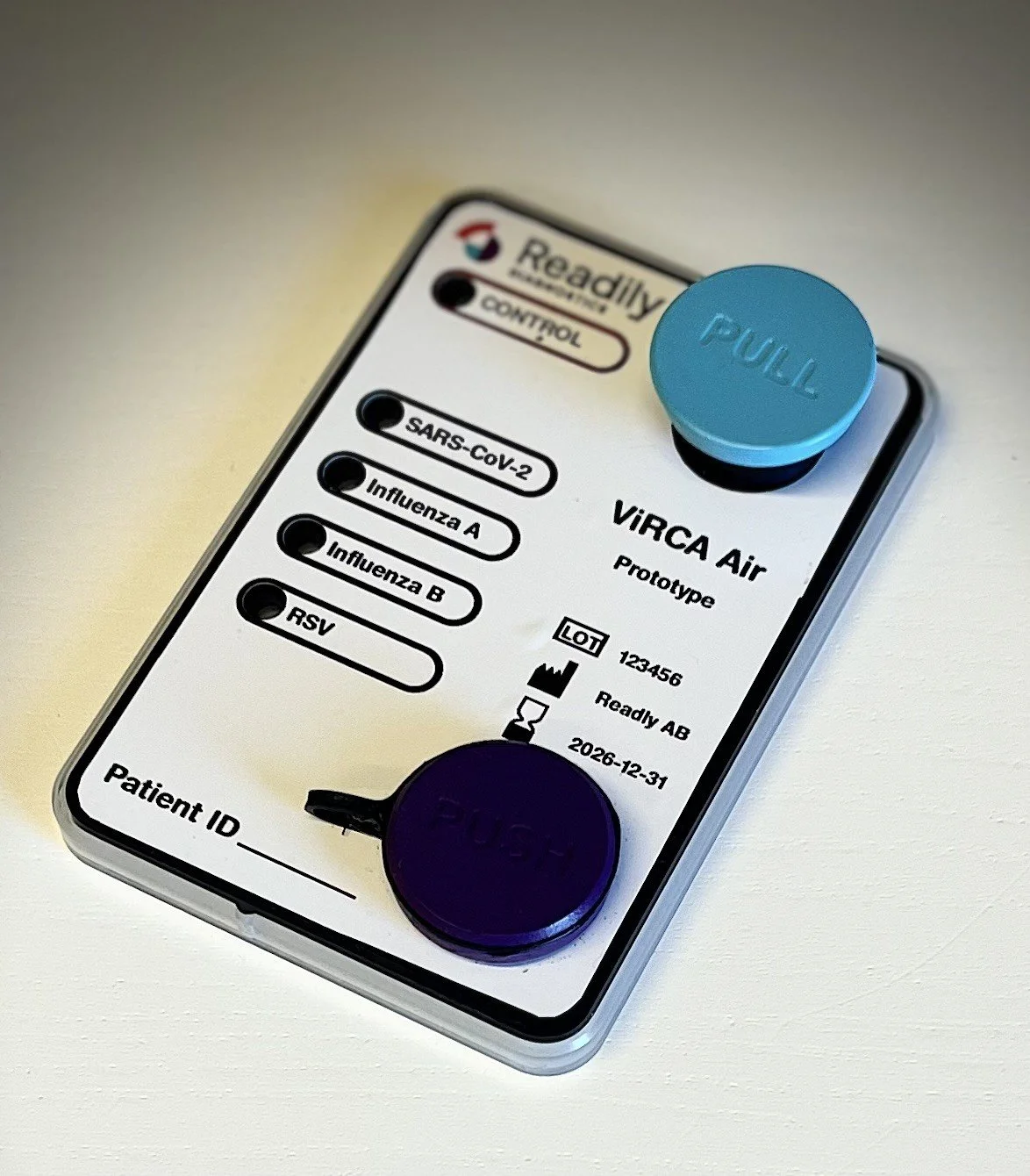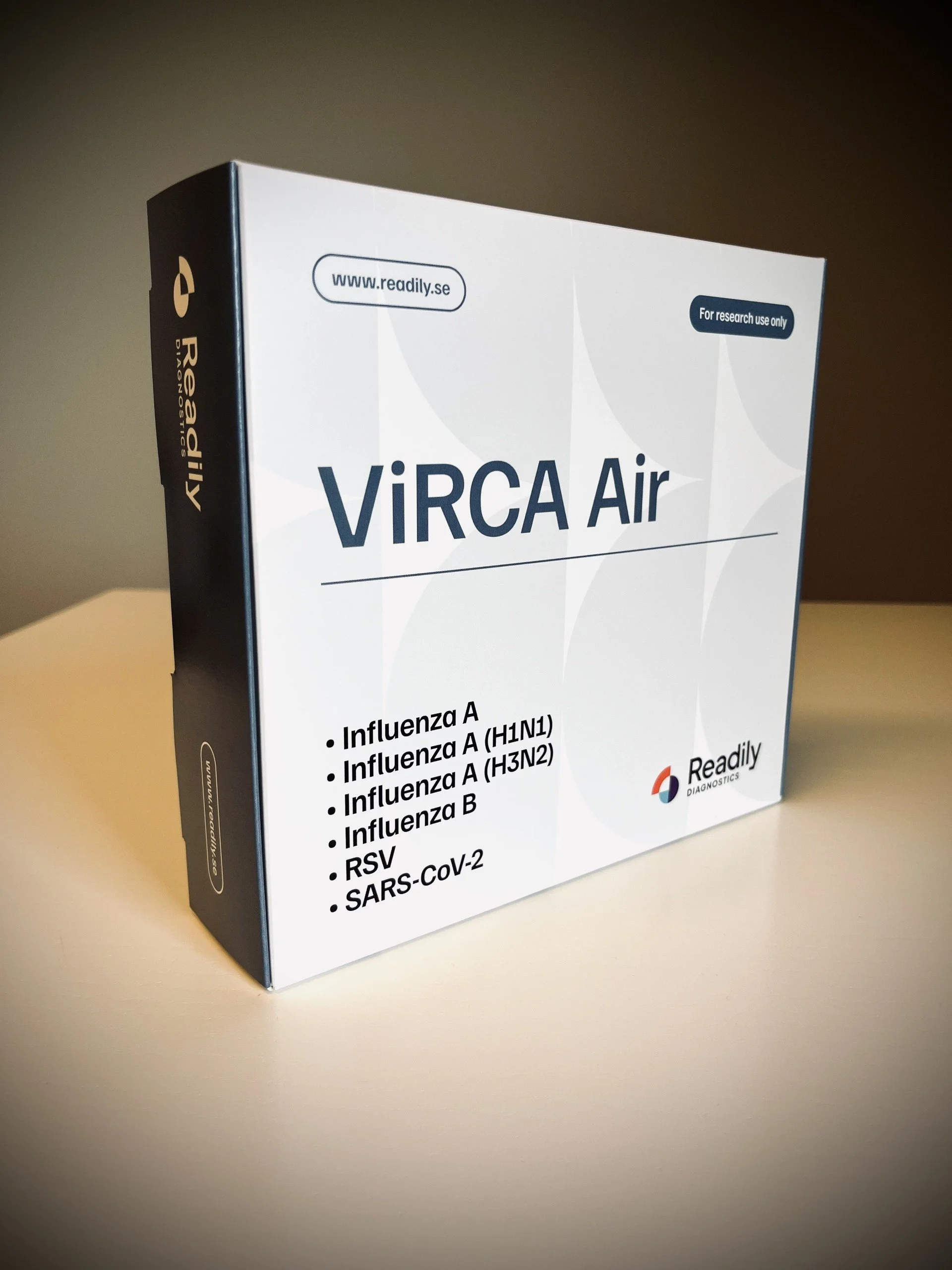
The Technology
Using the well-established padlock probe technology, originally developed by Readily’s co-founder Ulf Landegren and professor Mats Nilsson, we have developed a sensitive method to detect an ongoing infection, to identify the most common viruses and bacteria that may be the cause of infectious diesase - starting with respiratory disease.
The method uses padlock probes for target recognition, followed by isothermal amplification of reacted probes via rolling circle amplification (RCA).
The use of padlock probes ensures specificity of target detection by virtue of the requirement for target recognition via two sequences located at the ends of the probes. This is similar to the requirement for target recognition by pairs of primers in PCR. When the ends of the padlock probes hybridize next to each other on a target sequence, they can be joined by ligation.
Probes that have been circularized in a target-dependent manner then template RCA, generating long, easily detected strands of DNA. The use of padlock probes is very flexible and excellently suited for multiplex detection and distinction of multiple strains of pathogens in a single sample. The target specificity of the probes is easily modified for detection of new variants of the target sequences. Our padlock probe-based method detects and identifies ongoing infections within 15-30 minutes.
Our pathogen-specific padlock probes hybridize to their targets in a sample. Upon hybridization, enzymatic ligation converts the padlock probes to DNA circles.
The DNA circles template rolling circle amplification (RCA) reactions that produce long single-stranded DNA molecule, consisting of repeats complementary to the DNA circles. Short oligonucleotides, linked to nano particles, then hybridize to the growing RCA products, resulting in products that are large enough to be visible to the naked eye.
The entire reaction is preformed inside a microfluidic chip and the readout is instant. Detection of an ongoing infection from any of the pathogens included in our respiratory panel. Our test is not bigger than a credit card and require no electricity.
We currently offer a Research Use Only product in a microtiterplate format where different variants of viruses can be detected.
Either in an Instrument-free format or suitable with fluorescence readout.
Please contact us for more information
As we all witnessed during the Covid-19 pandemic, there is a need for more accessible, easy-to-use and reliable diagnostic tests. Readily Diagnostics is developing rapid diagnostic tests with the accuracy of RT-PCR, but configured as low-cost, easy-to-use microfluidics tests. Our tests are inexpensive, small, accessible, insensitive to temperature variation, and applicable wherever testing is needed.
The United Nation Sustainability Goal no 3 for 2030 calls for Good Health and Well-Being for everyone, but nearly half the world’s population lacks access to basic infection diagnostics. We aim to change the diagnostic landscape globally with our rapid diagnostic tests offering the performance of RT-PCR, but with no need for instrumentation. The diagnostic platform we are developing can rapidly identify ongoing infections from seven different viruses and bacteria from the same sample.





